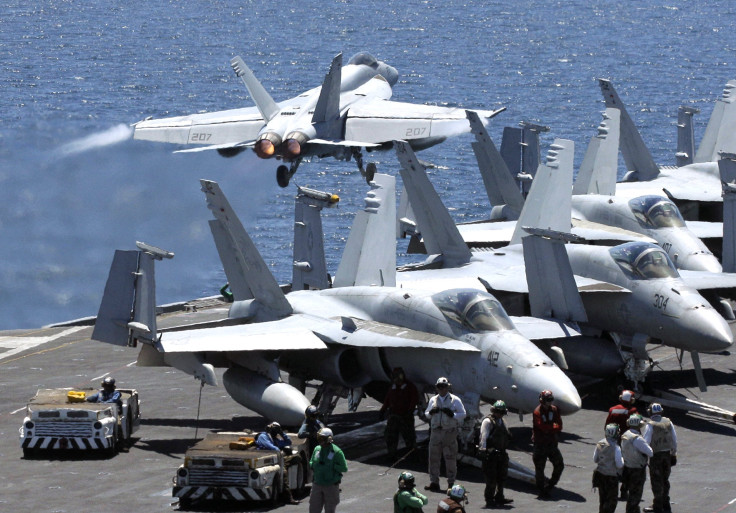China Calls US Nuclear Weapons Policy 'Cold War Mentality’

China criticized the United States' new nuclear weapons policy Sunday as outlined in a Department of Defense report as a “Cold War Mentality."
The Trump administration released a Nuclear Posture Review Friday calling for the development of more and smaller tactical nuclear weapons and more options in using them in the face of threats from countries like China, Russia and North Korea. President Donald Trump previewed the posture in his State of the Union Address on Tuesday.
China called for the U.S. to stop a policy it said harkened back to the days of the Soviet Union.
"We hope that the United States will abandon its Cold War mentality, earnestly assume its special disarmament responsibilities, correctly understand China's strategic intentions and objectively view China's national defense and military build-up” said China’s Ministry of Defense in a statement released Sunday.
China also said that the U.S. already has the world’s largest nuclear arsenal and should instead look to reduce its number of weapons.
“Peace and development are irreversible global trends. The United States, the country that owns the world's largest nuclear arsenal, should take the initiative to follow the trend instead of going against it,” the statement read.
Secretary of Defense Jim Mattis called the current world climate the most turbulent since the nuclear arms race between the U.S. and the former Soviet Union.
“America confronts an international security situation that is more complex and demanding than any since the end of the Cold War,” wrote Mattis. “In this environment, it is not possible to delay modernization of our nuclear forces if we are to preserve a credible nuclear deterrent—ensuring that our diplomats continue to speak from a position of strength on matters of war and peace.”
In addition to new kinds of nuclear weapons, the document calls for the modernization of the U.S.’s current arsenal. The report said that the U.S.’s nuclear triad — air, ground, and sea based-nuclear weapons — was still the most cost-effective war deterrent the U.S. had.
Trump mentioned some of the policy goals of the report Tuesday while pointing toward North Korea.
“As part of our defense, we must modernize and rebuild our nuclear arsenal, hopefully never having to use it, but making it so strong and powerful that it will deter any acts of aggression,” said Trump.
© Copyright IBTimes 2025. All rights reserved.





















